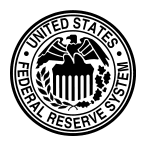Fed Facilities Benefiting Financial Institutions Shareholders
Stock-Markets / Credit Crisis 2008 Mar 18, 2008 - 11:37 AM GMTBy: Paul_L_Kasriel

 There Should Be a Quid Pro Quo between the Fed and Financial Institutions - The Fed's creation of various facilities in recent months - the Term Auction Facility (TAF) for depository institutions, the Term Securities Lending Facility (TSLF) for primary government securities dealers and the Primary Dealers Credit Facility (PDCF) - would be expected to alleviate some institutional liquidity issues that otherwise could metastasize into institutional solvency issues. Commercial and investment banks now can borrow against seemingly credit-worthy collateral with a much smaller "haircut" than otherwise. The Fed has created these new liquidity facilities in order to forestall a systemic failure of the financial system, not to enhance financial institution shareholder value.
There Should Be a Quid Pro Quo between the Fed and Financial Institutions - The Fed's creation of various facilities in recent months - the Term Auction Facility (TAF) for depository institutions, the Term Securities Lending Facility (TSLF) for primary government securities dealers and the Primary Dealers Credit Facility (PDCF) - would be expected to alleviate some institutional liquidity issues that otherwise could metastasize into institutional solvency issues. Commercial and investment banks now can borrow against seemingly credit-worthy collateral with a much smaller "haircut" than otherwise. The Fed has created these new liquidity facilities in order to forestall a systemic failure of the financial system, not to enhance financial institution shareholder value.
A byproduct of the new Fed liquidity facilities, however, undoubtedly has been to enhance financial institutions' shareholder value - perhaps save for one. By the Fed taking onto its balance sheet less creditworthy collateral as result of these new facilities, U.S. taxpayers have increased contingent liabilities. (The Fed turns over to the Treasury each year the bulk of its profits. If the Fed were to sustain losses on its collateral, the amount of profits it turned over to the Treasury would be reduced.) Why should the current shareholders of financial institutions benefit at the expense of U.S. taxpayers in general?
In a case where man bites dog, it appears as though the Fed and the Treasury may be looking out for the interests of the U.S. taxpayer. Publicly, both Fed and Treasury officials have urged financial institutions to raise additional capital post haste . I am not privy to private conversations, but I would hope Fed and Treasury officials are directly communicating to the CEOs of large financial institutions with "skinny" capital positions that they will raise more capital. By raising more capital, the contingent liabilities of U.S. taxpayers will be reduced and the existing shareholders of these large financial institutions will bear some of the social costs of these new Fed facilities through a dilution of their ownership in the financial institutions.
By Paul L. Kasriel
The Northern Trust Company
Economic Research Department - Daily Global Commentary
Copyright © 2007 Paul Kasriel
Paul joined the economic research unit of The Northern Trust Company in 1986 as Vice President and Economist, being named Senior Vice President and Director of Economic Research in 2000. His economic and interest rate forecasts are used both internally and by clients. The accuracy of the Economic Research Department's forecasts has consistently been highly-ranked in the Blue Chip survey of about 50 forecasters over the years. To that point, Paul received the prestigious 2006 Lawrence R. Klein Award for having the most accurate economic forecast among the Blue Chip survey participants for the years 2002 through 2005.
The opinions expressed herein are those of the author and do not necessarily represent the views of The Northern Trust Company. The Northern Trust Company does not warrant the accuracy or completeness of information contained herein, such information is subject to change and is not intended to influence your investment decisions.
Paul L. Kasriel Archive |
© 2005-2022 http://www.MarketOracle.co.uk - The Market Oracle is a FREE Daily Financial Markets Analysis & Forecasting online publication.


